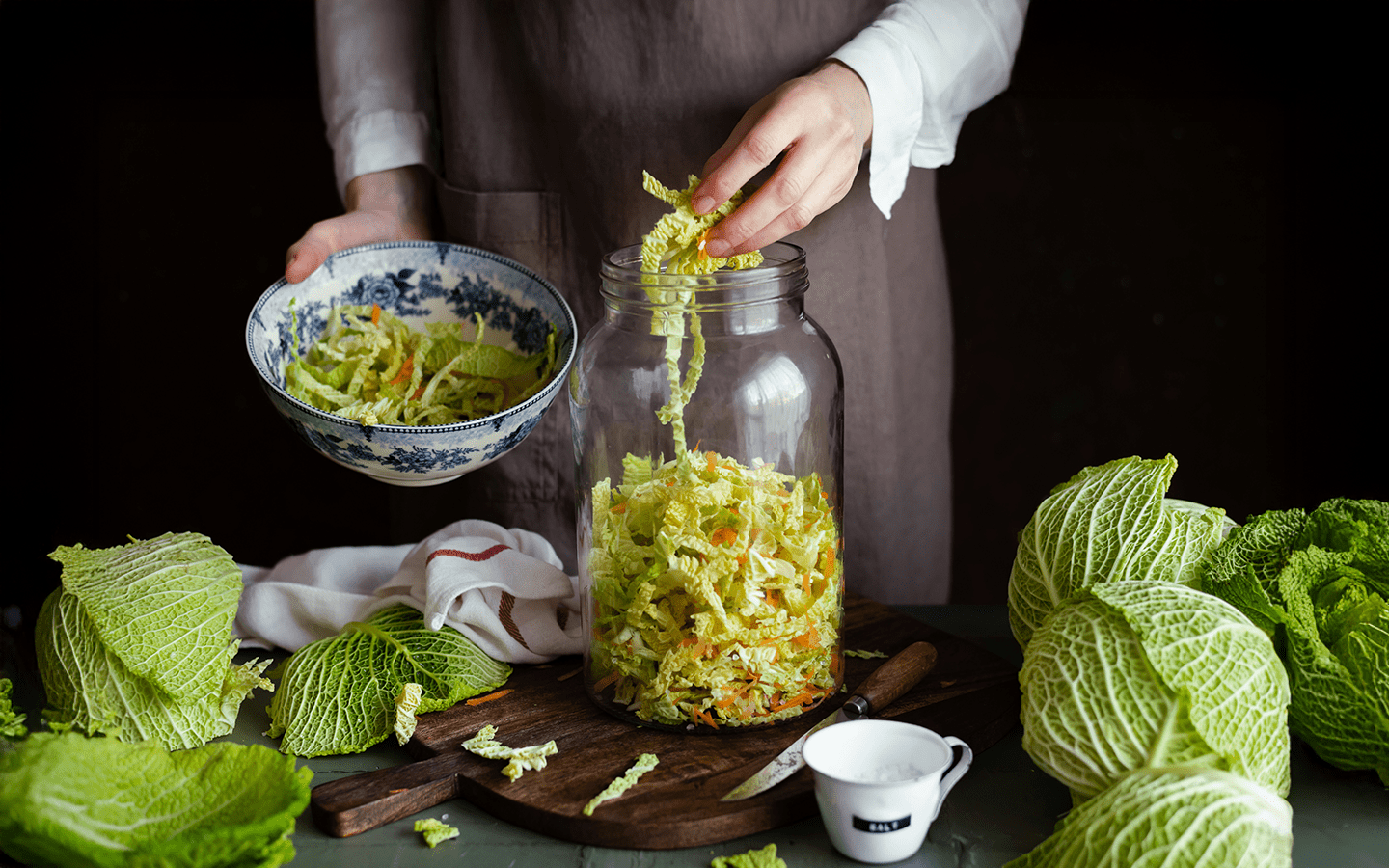
Mindful Eating: How Your Food Choices Affect Inflammation
Mindful eating isn't just about controlling portion sizes; it's about making choices that can help you feel your best, reduce inflammation, potentially leading to improved health and wellbeing.
In our busy lives, the concept of eating might seem as simple as fulfilling a basic need. However, what if I told you that the way you eat and what you choose to eat have profound effects on your body's inflammatory processes? Let’s dive into how your food choices can influence inflammation and the mindful practices you can adopt to foster a healthier you.
Key Highlights
- Chronic inflammation is a persistent, low-grade inflammation that can contribute to various health issues.
- Your diet plays a crucial role in either promoting or combating inflammation within the body.
- Processed foods, sugary drinks, and unhealthy fats can trigger inflammatory responses.
- On the other hand, whole foods, fruits, vegetables, and foods rich in omega-3 fatty acids can help reduce inflammation.
- Mindful eating practices can help you make conscious food choices that support a healthy inflammatory response.
Introduction
We often hear about inflammation and how it affects our health. Have you thought about how what you eat connects to inflammation in your body? Chronic inflammation can start from bad eating habits and harm your health over time. By paying attention to what you eat and making better choices, you can help balance inflammation in your body and create a healthier lifestyle.
Understanding Inflammation and Its Causes
Let's begin by understanding what inflammation is. Inflammation is your body's way of protecting itself from injury or infection. When you get a cut or sprain, the area can become red, swollen, and painful. This is called acute inflammation. It shows that your body is working to heal.
On the other hand, chronic inflammation lasts a long time. It can go on for weeks, months, or even years. Unlike acute inflammation, you might not notice the signs of chronic inflammation. However, it can silently cause serious health problems like heart disease, type 2 diabetes, and some cancers.
The TCM Perspective on Diet and Inflammation
In Traditional Chinese Medicine, we view food not just as fuel, but as medicine. Each food has unique properties that can either balance or disrupt our body's harmony. Foods are categorized based on their energetic qualities—such as warming, cooling, drying, or moistening—and these qualities can either soothe or exacerbate inflammation.
The Role of Diet in Triggering Inflammation
Our diet has a big effect on inflammation in our bodies. Acute inflammation is normal and helps with healing. But chronic inflammation usually comes from unhealthy food choices. It’s like adding more fuel to a fire that should have gone out.
Eating foods that are high in refined sugars, unhealthy fats, and artificial additives can cause inflammation. Think of these foods as little troublemakers that irritate your immune system. This keeps your immune system working too hard, leading to many health issues.
To reduce excessive inflammation, change your diet to include more whole, unprocessed foods. Focus on fruits, vegetables, whole grains, and healthy fats. This can help your body feel better and improve your overall health.
Common Inflammatory Foods to Avoid
When you want to manage inflammation with your diet, you should know the common foods that can cause it. Cutting back or removing these foods can help your body feel better.
Artificial sweeteners are often found in diet sodas and processed foods. They might seem safe, but they can mess up your gut bacteria and lead to more inflammation. Eating too much dairy, especially fatty ones, can also cause issues for some people.
Here’s a quick list to keep in mind:
- Refined sugars and high-fructose corn syrup: Found in many processed foods, these sugars can trigger the release of inflammatory messengers called cytokines.
- Artificial trans fats: These are found in some margarines, snack foods, and processed baked goods and are known to promote inflammation.
- Refined carbohydrates: White bread, white rice, and many pastries can cause inflammation by prompting rapid spikes in blood sugar.
- Processed meats: Studies have shown that processed meats are linked with an increased risk of inflammation-related diseases like heart disease and cancer.
The Power of Anti-Inflammatory Foods
Some foods can make inflammation worse, while others can help reduce it. Certain foods work like firefighters to calm inflammation in your body. When you add these healthy foods to your meals, you give your body what it needs to fight inflammation naturally.
Think of a colorful plate full of fresh fruits and vegetables. These foods are rich in antioxidants and healthy fats from olive oil and avocados. Lean proteins like fish are also great options. This mix of foods not only tastes great, but it also provides your body with important nutrients that help reduce inflammation.
Key Nutrients That Combat Inflammation
Think of anti-inflammatory foods as helpers in the fight against inflammation. Omega-3 fatty acids are one of the most known anti-inflammatory nutrients. You can find them in fatty fish like salmon, mackerel, and sardines. Omega-3s can reduce the production of inflammatory chemicals in the body.
Olive oil is another great food for fighting inflammation. It is important in the Mediterranean diet. Olive oil is full of healthy fats and antioxidants. It helps protect your cells from damage and lowers the level of inflammatory substances.
Eating a mix of anti-inflammatory foods in your meals gives your body many nutrients to fight inflammation in different ways.
Top Anti-Inflammatory Food Choices
Ready to fill your plate with foods that help reduce inflammation? Try a Mediterranean-style diet. This diet includes plenty of fruits, vegetables, whole grains, and healthy fats. Imagine bright salads topped with olive oil, filling bowls of lentil soup, and grilled fish with tasty herbs and spices.
Pick whole grains such as brown rice, quinoa, and oats instead of refined grains. Whole grains give your body fiber, which helps keep your gut microbiome healthy. A strong gut microbiome is important for managing inflammation. Also, be sure to add in a variety of colorful fruits and vegetables. They are full of antioxidants that can fight free radicals and lower inflammation.
Here are some great choices:
- Fatty fish (salmon, mackerel, tuna, sardines)
- Berries (blueberries, strawberries, raspberries)
- Leafy green vegetables (spinach, kale, collard greens)
- Nuts and seeds (walnuts, chia seeds, flax seeds)
- Olive oil
- Avocado
- Turmeric
- Ginger
Integrating Mindful Eating into Your Routine
Mindful eating goes beyond just choosing the right foods. It's about being present and aware during your meals, listening to your body's needs, and understanding how different foods make you feel. Here are some ways to practice mindful eating and make anti-inflammatory food choices:
- Eat a Rainbow: Incorporate a variety of colorful fruits and vegetables into your diet. These foods are rich in antioxidants and phytonutrients that combat inflammation. In TCM, we believe that eating a diversity of colors helps balance the body's energies.
- Choose Whole Foods: Opt for whole grains, lean proteins, and healthy fats. These foods are less likely to cause inflammatory responses compared to processed foods high in refined sugars and unhealthy fats.
- Embrace Cooling Foods: If you're prone to inflammation, include more cooling foods in your diet. These include cucumber, watermelon, leafy greens, and chrysanthemum tea.
- Spice It Up: Many spices have potent anti-inflammatory properties. Turmeric, ginger, and cinnamon are excellent choices that also align with TCM principles of promoting circulation and balancing energy.
- Stay Hydrated: Proper hydration is crucial for flushing out toxins and reducing inflammation. In TCM, we recommend room temperature or warm water to support digestive fire.
- Listen to Your Body: Pay attention to how different foods make you feel. Keep a food diary if needed, and note any connections between certain foods and inflammatory symptoms like bloating, skin issues, or joint pain.
- Practice Gratitude: Before each meal, take a moment to appreciate your food. This simple act can reduce stress and promote better digestion, indirectly supporting your body's anti-inflammatory processes.
- Slow Down: Eat slowly and chew thoroughly. This not only aids digestion but also helps you tune into your body's hunger and fullness cues, preventing overeating which can lead to inflammation.
Principles of Mindful Eating for Inflammation Reduction
Think of mindful eating as a nice way to focus completely on eating. When you practice mindfulness at meal times, you can connect better with your body. This helps you make choices that lead to a healthy way to manage inflammation.
A main idea of mindful eating is to notice when you're hungry or full. Before you grab a snack, take a moment to think. Are you really hungry, or are you just bored or feeling emotional? Eating only when you are truly hungry can stop you from overeating and help your digestion.
Also, chewing your food well and eating in a calm space can help your digestion and how your body takes in nutrients. This mindful way of eating may also activate the vagus nerve. This nerve is important for controlling inflammation and helping you feel relaxed.
How Mindful Eating Supports Hormonal Balance and Reproductive Health
Mindful eating can really help your hormones and reproductive health. When you are stressed a lot and eat in a hurry, your body makes cortisol. This stress hormone can mess up your hormone balance.
Eating mindfully lowers stress and makes you feel calm. This creates a better balance in your hormones. As a result, it can help with reproductive health by making menstrual cycles more regular, easing PMS symptoms, and even helping with fertility.
When you practice mindful eating, you are not only taking care of your body. You are also building a strong mind-body connection that supports your overall health, including hormone balance and reproductive health.
Practical Tips for a Mindful, Anti-Inflammatory Diet
Transitioning to a mindful, anti-inflammatory diet doesn’t mean you have to change everything about your eating habits at once. You can start with small, simple changes in your routine over time. Consistency is really important.
Try out new anti-inflammatory recipes. Visit farmers' markets for fresh produce. It’s also good to find ways to make healthy eating fun for you. As you notice how different foods affect your body, you can adjust your diet to fit your needs better.
Incorporating Phytonutrients and Fiber for Optimal Health
Let's explore phytonutrients. These are natural compounds in plants that give fruits and vegetables their bright colors. They offer many health benefits, like helping with inflammation and fighting free radicals. Try to "eat the rainbow." Include different colorful fruits and vegetables in your meals.
Fiber is also key for controlling inflammation. It helps your gut, acting like a scrub brush. It ensures good digestion and a healthy gut microbiome. You can find fiber in whole grains, legumes, fruits, and vegetables.
Focusing on foods rich in phytonutrients and getting enough fiber can help support a healthy gut microbiome, lower inflammation, and improve your overall well-being.
Strategies for Reducing Omega-6 and Increasing Omega-3 Intake
We often hear about the importance of balancing omega-3 and omega-6 fatty acids for optimal health. While both are essential, the modern Western diet tends to be overloaded with omega-6s, which can contribute to inflammation when consumed in excess.
The goal is to strive for a healthier balance between these two types of polyunsaturated fats. Increase your intake of omega-3 rich foods like fatty fish, flaxseeds, and walnuts, and be mindful of your intake of omega-6 rich oils like soybean oil and corn oil, often found in processed foods.
Here's a simple guide:
| Reduce Omega-6 | Increase Omega-3 |
|---|---|
| Soybean oil | Fatty fish (salmon, mackerel) |
| Corn oil | Flaxseeds |
| Sunflower oil | Walnuts |
| Processed foods | Chia seeds |
Navigating Challenges: Eating Out and Social Events
Let's be honest—going to social events while trying to stick to a healthy diet can be tough. However, it's not about missing out or being alone. It’s about making smart choices that fit your health goals while still enjoying yourself.
When you eat out, look at the menu before you go. This way, you can find healthier options. Don’t be afraid to ask for changes in dishes, like grilled or steamed food instead of fried. You can also ask for sauces and dressings to be put on the side. Keep in mind, you can create a dining experience that helps both your social life and your health.
Choosing Anti-Inflammatory Options at Restaurants
Dining out can be fun, not stressful. This is possible, especially if you think about your eating habits. With some planning, you can make good anti-inflammatory choices at restaurants.
When you check the menu, look for meals that have lots of vegetables, grilled or baked proteins, and healthy fats. Choose salads with olive oil and vinegar dressings instead of creamy ones. For sides, pick steamed vegetables or a small serving of brown rice instead of fries or mashed potatoes.
Don’t hesitate to tell your server what you prefer. Most restaurants want to help you with your dietary wishes. Remember, you create your own dining experience.
Handling Social Dining Pressures Gracefully
Social gatherings often focus on food. This can make it hard to stick to your healthy eating goals. You might feel tempted by treats and face friendly hosts who encourage you to eat. But with some practice and kindness to yourself, you can handle these situations well and not feel missing out.
Before you go to a social event, snack on something light and healthy. This will help reduce hunger and stop you from making quick poor food choices when your stomach is empty. It's perfectly fine to say no to food if you don't feel hungry or if it doesn't fit your dietary choices.
During the event, try using mindful eating techniques. Talk with others, enjoy the taste of the foods you choose, and be in the moment instead of just thinking about the food.
What’s Next: Putting It Into Practice
Remember, transitioning to a more mindful, anti-inflammatory way of eating is a journey. Start small by incorporating one or two of these practices into your routine. Maybe begin your day with a warm glass of lemon water, or experiment with adding more colorful vegetables to your lunch. As you become more attuned to your body and how different foods affect you, you'll naturally start making choices that support your health and reduce inflammation. This mindful approach to eating doesn't just benefit your physical health—it can also bring more joy and satisfaction to your meals.
Frequently Asked Questions
What are the first steps towards adopting an anti-inflammatory diet?
Begin by adding more anti-inflammatory foods to your meals. Focus on colorful fruits and vegetables. Include fatty fish that are high in omega-3s. Choose whole grains instead of refined grains. Also, add nuts, seeds, and olive oil to your diet. Try to reduce processed foods, sugary drinks, and unhealthy fats.
Can mindful eating really improve my hormonal balance?
Mindful eating can help with hormonal balance by lowering stress and improving digestion. When you reduce stress, it can help keep cortisol levels in check. Cortisol is important for regulating hormones.
How can I maintain an anti-inflammatory diet with a busy lifestyle?
Meal planning is very helpful! It lets you get healthy meals and snacks ready ahead of time. Make sure to fill your fridge with fresh fruits, vegetables, nuts, and seeds. This way, you have easy options to grab when you’re on the go.
Are there any quick anti-inflammatory snack ideas?
Sure! Here are some good snack ideas:
- A handful of nuts
- Greek yogurt with berries and chia seeds
- Avocado and tomato slices
- Green apple slices with almond butter
- A small sweet potato
- Hummus with veggie sticks
- A cup of green tea to relax
How does reducing inflammation benefit my overall well-being?
Reducing inflammation can help you lower your risk of long-term illnesses. These include heart disease, type 2 diabetes, and some types of cancer. It can also boost your energy levels, improve your mood, help you sleep better, and make digestion easier. Plus, it supports weight management, leading to better overall health.













